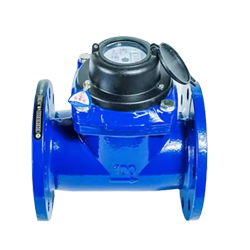
Mechanical Flowmeters : Reliable and Cost-Effective Flow Measurement
Pioneer offers mechanical flowmeters, providing a robust and economical solution for measuring the flow of various liquids. These flowmeters utilize mechanical components to measure flow, offering simplicity, reliability, and ease of installation.
How Mechanical Flowmeters Work
- Positive Displacement (PD) Flowmeters : These meters trap a known
volume of fluid with each rotation of a mechanical element (e.g.,
gears, pistons, vanes). They are highly accurate and suitable for
viscous liquids. Examples include :
- Oval Gear Flowmeters : Two rotating oval gears mesh together, trapping fluid between them.
- Gear Flowmeters : Similar to oval gear, but with different gear shapes.
- Piston Flowmeters : Use one or more reciprocating pistons to measure flow.
- Turbine Flowmeters : (Covered in a separate section, but often categorized as "mechanical") Use a rotating turbine that spins at a speed proportional to the flow velocity.
- Paddle Wheel Flowmeter : use a freely rotating wheel or paddle with embedded magnets that is inserted into the flow
Advantages of Mechanical Flowmeters
- Cost-Effective : Generally less expensive than electronic flowmeters.
- Simple Operation : Easy to understand and operate.
- No External Power Required : (For many types) They operate solely on the energy of the flowing fluid.
- High Accuracy : (Especially for positive displacement types)
- Good for Viscous Liquids : (Especially positive displacement types)
- Direct Volumetric measurement
Applications
- Water Measurement : Measuring water flow in residential, commercial, and industrial settings.
- Fuel Measurement : Measuring fuel consumption in engines, generators, and heating systems.
- Oil Measurement : Measuring the flow of lubricating oils, hydraulic fluids, and other oils.
- Chemical Processing: Measuring the flow of various chemicals (with appropriate material selection).
- Food and Beverage : Measuring ingredients and product flow (with sanitary designs).
Key Considerations
- Fluid Compatibility : Ensure the flowmeter materials are compatible with the fluid being measured.
- Viscosity : Consider the viscosity of the fluid. Positive displacement meters are generally better for viscous liquids.
- Pressure Drop : Mechanical flowmeters can introduce some pressure drop into the system.
- Maintenance : Moving parts may require periodic maintenance or replacement.
- Flow Range : Select a flowmeter with an appropriate flow range for your application.
- Accuracy
- Temperature and Pressure rate
Why Choose Pioneer Mechanical Flowmeters ?
Durable Construction, Wide Selection, Reliable Performance, Expert Advice, Competitive prices
| Specification | Details |
|---|---|
| Material | Stainless Steel |
| Packaging Type | CARTON BOX |
| Usage/Application | Industrial |
| Display | Analog |
| Line Size | 15 MM - 300 MM |
| Standards | ISO 4064 |
| Brand | Pioneer |
| Warranty | 1 Year |
| Maximum Pressure | 16 BAR |
| Features | Stainless Steel Casting |
| Operating Pressure | 10 BAR |
| Operating Temperature | UPTO 50 DEG C |
| Country of Origin | Made in India |




